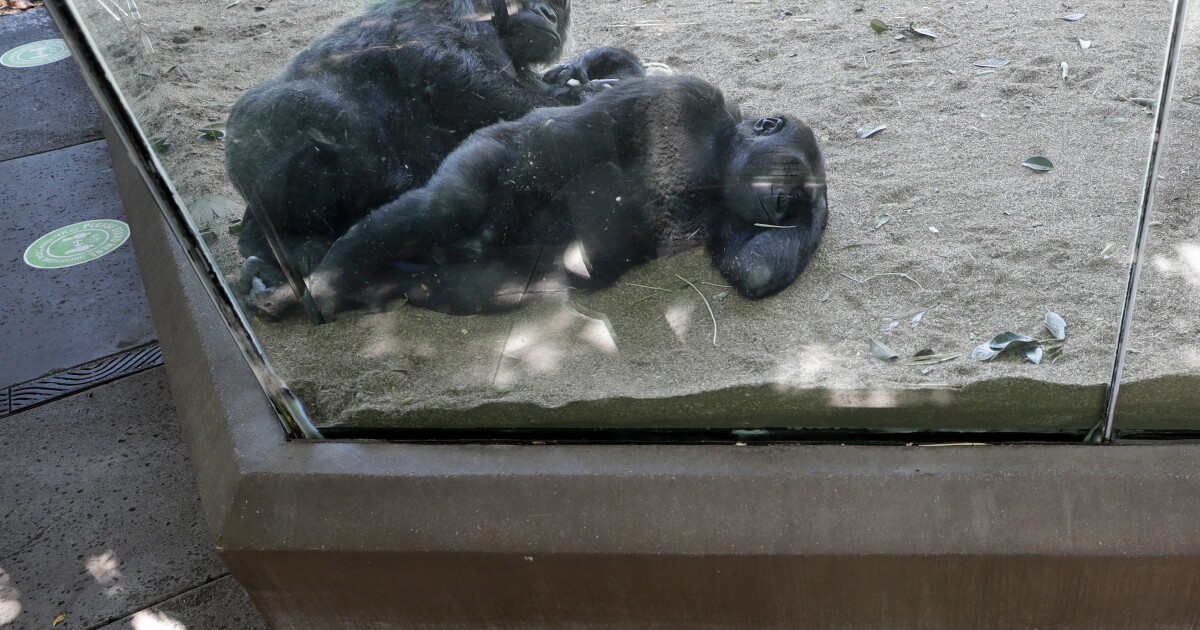The gorilla coughs at the San Diego Safari Park Zoo were the first warning. What many feared was soon confirmed: A group of gorillas were the first apes to test positive for the coronavirus.
Around the world, scientists and veterinarians are striving to protect animals from COVID-19, often using the same methods used with humans: social distancing, medical check-ups and, in some zoo animals, a vaccine.
Karen, a 28-year-old orangutan, is the world’s first ape to receive a coronavirus vaccine on January 26 at the San Diego Zoo.
Karen received two doses of the vaccine from Zoetis, a New Jersey laboratory focused on animal medicine, and has had no adverse reactions. Since then, another nine primates have been vaccinated and four more received the first dose this month and are waiting for the second in April.
“We want to protect our great apes,” said zoo animal health manager Nadine Lamberski, adding that she felt the need to do something after eight gorillas were infected.
They are believed to have been infected by an employee who had contracted the virus but had no symptoms. Seven gorillas recovered without having had strong symptoms, but the eighth, elderly, suffered pneumonia, probably caused by the virus, and heart problems. They gave him antibiotics and heart medicine, and he received antibodies to prevent the virus from infecting the cells.
About three dozen zoos around the world are purchasing the Zoetis vaccine, which elicits strong immune responses in certain species.
“We want to seize the opportunity to get the Zoetis vaccine for our great apes,” said Oakland Zoo Director of Veterinarians Alex Herman, who ordered 100 doses.
Zoetis obtained a permit from the Department of Agriculture to test the vaccine at the San Diego Zoo and is now awaiting authorization to offer the vaccine to other zoos.
Scientists believe that the coronavirus originated in bats and then spread to humans. Now many researchers fear that humans could infect other susceptible species.
“Right now humans are the main carriers of SARS-CoV-2, with consequences for several animal species,” said Arinjay Banerjee, a researcher at McMaster University in Canada.
Great apes, such as gorillas, who share 98% of their DNA with humans, are especially susceptible, as are felines. So far, infections have been confirmed in gorillas, tigers and zoo lions, in domestic cats and dogs, mink from hatcheries and at least one wild mink, in Utah.
The scientists also found that ferrets, raccoon dogs and white-tailed deer are susceptible, and pigs and cattle are not.
“This can be a problem, especially if the virus starts to spread between species with very small populations,” said Kate Langwig, an infectious disease specialist at Virginia Tech.
Another concern is the possibility of the virus spreading to other species and producing new variants, complicating efforts to contain the pandemic.
In Denmark, employees of a mink farm accidentally infected the animals. As the virus spread, it began to mutate and employees were infected with a new variant. Given this, the government ordered the killing of millions of minks.
Many measures to avoid contagion with animals are known: masks, disinfected equipment, periodic medical check-ups and physical distancing.
Since the outbreak, the San Diego Zoo has installed more fans in enclosed primate areas to improve air circulation. Staff wear two face masks and masks, and limit the time spent indoors with the animals.
“COVID-19 is a wake-up call that made us see that these viruses can pass from animals to people and from people to great apes,” said Kristen Gilardi, CEO of Gorilla Doctors, an organization that works in the preservation of animals.
There are only a thousand free mountain gorillas in the world.
– .


